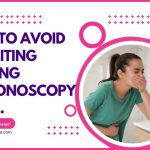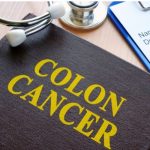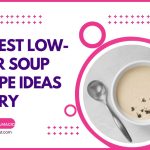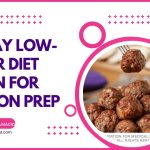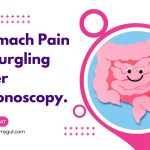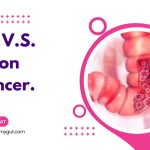Can I Eat a Burger After a Colonoscopy? And When?
Our content is not intended nor recommended as a substitute for medical advice by your doctor. Use for informational purposes only.
Are you one of the millions who have a deep-seated love for a good, juicy burger? If so, you might wonder: Can I enjoy my favorite meal after a colonoscopy?
The answer to this question isn’t as simple as a yes or no. Instead, it depends on several variables, including the specifics of your health condition, the type of procedure, and your body’s response post-procedure.
The Short Answer
In essence, you can technically eat a burger after a colonoscopy. However, healthcare professionals typically advise starting with lighter, more easily digestible foods. This recommendation stems from the fact that your digestive system may be more sensitive after the procedure.
Bullet Summary
- Consuming a burger after a colonoscopy is possible, but it’s best first to reintroduce lighter, easily digestible foods.
- Factors like the initial condition of your colon, the specifics of the colonoscopy procedure, any post-procedure digestive symptoms, and the type of anesthesia used can all influence dietary recommendations post-colonoscopy.
- If you’re experiencing any digestive discomfort, heavier meals like burgers should be reintroduced into your diet at a slower pace.
- Hydration is crucial after a colonoscopy; maintaining a balanced diet is also essential for recovery.
Factors Determining What and When to Eat After Colonoscopy
Post-procedure dietary guidelines can be influenced by a variety of factors, including:
1. The Original Condition (Disease) of the Colon
Some people undergo colonoscopies because they deal with conditions like inflammatory bowel disease (IBD) or diverticulosis¹. If you’re one of these individuals, you may need to follow a more specialized diet to avoid exacerbating your condition.
2. Colonoscopy Procedures
Colonoscopies can range from simple screenings to more involved procedures like polyp removals or biopsies. These additional procedures might cause minor bleeding or bloating, prompting healthcare providers to suggest a particular diet to aid in healing.
Learn More about colonoscopy procedures.
3. Post-Colonoscopy Digestive Symptoms
Your body’s response post-colonoscopy can greatly influence your diet. Symptoms like gas, bloating, or altered bowel movements may dictate what you should eat.
If these symptoms persist, it might be best to avoid heavier meals until you’re feeling better.
The figure below illustrates common post-colonoscopy symptoms (reference).
4. The type of Anesthesia
Sedatives used during colonoscopies might cause side effects like nausea or drowsiness. Until these symptoms subside, it might be best to stick to lighter, more easily digestible foods.
Moreover, some patients may require general anesthesia during a colonoscopy. The anesthetic medications usually cause intense nausea, and slow gut motility, making it difficult to eat high-fat foods such as burgers after a colonoscopy.
Learn more about the side effects of anesthesia on your gut.
Can You Eat a Burger After a Colonoscopy?
After understanding the variables, we revisit the initial question: Can you eat a burger post-colonoscopy?
It is generally OK to eat a burger after your colonoscopy. However, it’s recommended to gradually reintroduce foods into your diet, starting with those that are easy to digest. This is largely due to the sensitivity your digestive system might experience after the procedure.
Also, Burger may be contraindicated if You have procedures or gut diseases requiring a special diet. Always consult your doctor or dietitian if you have an existing bowel condition or if you’ve undergone a procedure such as a polyp removal.
When to Eat a Burger After the Colonoscopy?
Since everyone’s body is unique and the recovery process can vary, there’s no fixed timeframe to reintroduce heavier foods like burgers into your diet.
If your colonoscopy ran smoothly and you don’t have
However, many healthcare providers advise waiting at least a day before eating these types of foods.
When NOT to Eat a Burger After the Colonoscopy?
If you’re feeling nauseated, vomiting, experiencing abdominal discomfort, or dealing with other post-colonoscopy digestive symptoms, it might be best to avoid heavier meals like burgers. It’s also essential to follow any specific dietary guidelines your healthcare provider gives you based on your personal health situation.
Tips to Eat Safely
After a Colonoscopy
The following tips can ensure a smoother recovery process:
- Stay Hydrated: Bowel preparation prior to a colonoscopy can cause dehydration. It’s vital to replenish your fluids by drinking plenty of water, clear broths, and juices².
- Gradual Diet Transition: Begin with foods that are easy to digest and slowly introduce more complex foods back into your diet.
- Listen to Your Body: If certain foods cause discomfort, it might be best to delay their reintroduction.
Best and Worst Foods After a Colonoscopy
While everyone’s digestive system is unique, the following general recommendations can guide you:
Best Foods:
- Low-fiber foods: Eggs, well-cooked vegetables, and lean meats can be easier to digest.
- Hydrating fluids: Consuming water, clear broths, and juices can help combat dehydration.
Worst Foods:
- High-fat, heavy foods: Foods like burgers, fried items, and pizza might be harder to digest and can exacerbate digestive discomfort.
- Gas-inducing foods: Certain foods like beans, cabbage, and carbonated drinks can cause bloating and should be avoided initially.
Here’s an extended list of foods to eat and to avoid after a colonoscopy.
| Foods to Eat | Foods to Avoid |
|---|---|
| 1. Cooked vegetables | 1. Raw vegetables |
| 2. Lean meats like chicken and turkey | 2. Fatty meats like bacon and sausages |
| 3. Eggs | 3. Spicy foods |
| 4. Low-fiber fruits such as bananas and melons | 4. High-fiber fruits like raspberries and pears |
| 5. Well-cooked grains like white rice and pasta | 5. Whole grains and brown rice |
| 6. Dairy products in moderation | 6. Dairy products in excess, especially if lactose intolerant |
| 7. Broth-based soups | 7. Creamy soups |
| 8. Saltine crackers | 8. Chips and other fried snacks |
| 9. Decaffeinated teas | 9. Coffee and other caffeinated drinks |
| 10. Clear fruit juices | 10. Carbonated drinks |
| 11. Gelatin desserts like Jell-O | 11. Chocolates and other rich desserts |
| 12. White bread and toast | 12. Whole grain bread |
This list is intended to guide you through reintroducing foods after a colonoscopy. However, everyone’s body reacts differently, and what works for one person may not work for another.
Always listen to your body and consult with your healthcare provider if you have any concerns.
These recommendations are meant to guide you, but it’s important to remember that everyone’s body is unique. Always listen to your healthcare provider and your body when deciding what to eat after a colonoscopy.
FAQs:
What types of burgers should I avoid when eating after a colonoscopy?
When it comes to dining post-colonoscopy, it’s beneficial to sidestep burgers that are hefty in size and dripping with fat or cheese, as they can be too heavy for a digestive system that’s only just starting to regain its footing. These types of burgers could possibly strain your gut, which is still recovering from the procedure.
What are the signs of gut recovery after colonoscopy?
As your gut begins its recovery journey post-colonoscopy, there are several signals to look out for. A resumption of regular bowel movements without an extreme level of discomfort is typically the most clear-cut sign. You may also notice a reduction in bloating and less frequent episodes of gas and stomach cramps. These signs suggest that your gut is readjusting to its normal function.
Can I eat Hamburger 2 days before the colonoscopy?
In the days leading up to your colonoscopy, it’s wise to err on the side of caution regarding your diet. Two days before the procedure, it’s recommended to avoid heavy, hard-to-digest foods like hamburgers. These can interfere with the bowel prep process, which is crucial for ensuring a clear view during the colonoscopy.
What are the possible side effects of eating burgers soon after a colonoscopy?
Digging into a burger too soon after a colonoscopy could potentially lead to unwanted side effects. Given the high fat content of burgers and the heightened sensitivity of your digestive system following the procedure, you may experience increased bloating, stomach discomfort, or constipation. As always, listen to your body and consult with your healthcare provider if you have any concerns.
- Evidence-based
- Written by a doctor.

